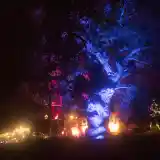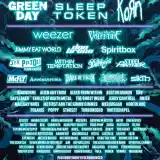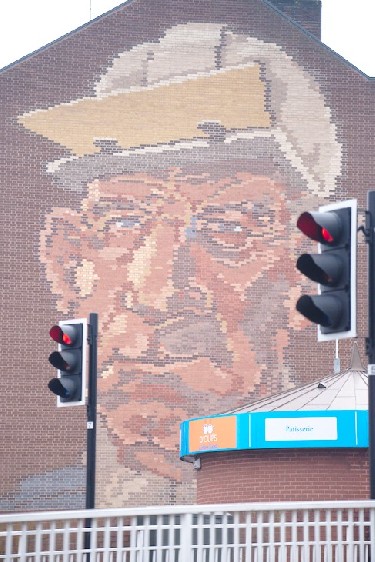
HRH Blues 2018
Saturday 14th to Sunday 15th April 2018O2 Academy, 37-43 Arundel Gate, Sheffield, South Yorkshire, S1 2PN, England MAP
£79 for both days or £45 per day
So, here we are in Sheffield, the Steel City. And it feels like spring has finally arrived.
The first band on stage, at one o’clock on Saturday, in the main arena, are The Della Grants, from Leicester. They’re a five-piece, young and mostly bearded. The front-man tells us he’s left his phone switched on because his wife is nine months pregnant, and the due-date is tomorrow. He’s already had a call, but it was about PPI. Despite having every excuse for a lack of concentration, and despite being on first, the band are tight, relaxed and confident. They start with a slow number with thoughtful lyrics, but soon they’re playing driving twelve-bar blues. One of the guitarists doubles up on harmonica and the keyboard player plays trumpet. The singer has a gravelly voice and the sound is not unlike Family. (Well, they are from Leicester.) This is a good start, and the band are happy to be here. Nothing fancy, but well-crafted songs and good musicianship. The expectant father thanks everyone for coming so early and says he didn’t expect to see so many people here. Quite a few of the crowd have obviously seen them before. They sing a song about fighting called "The Red Mist", and a song about drinking. (“Does anybody here like drinking?” asks the singer. “Not at these prices!” comes the reply.) He tells us it’s not easy coming on first, but they make it look easy. This has been an absolutely top-notch set. Excellent. This could potentially be the highlight of the weekend.
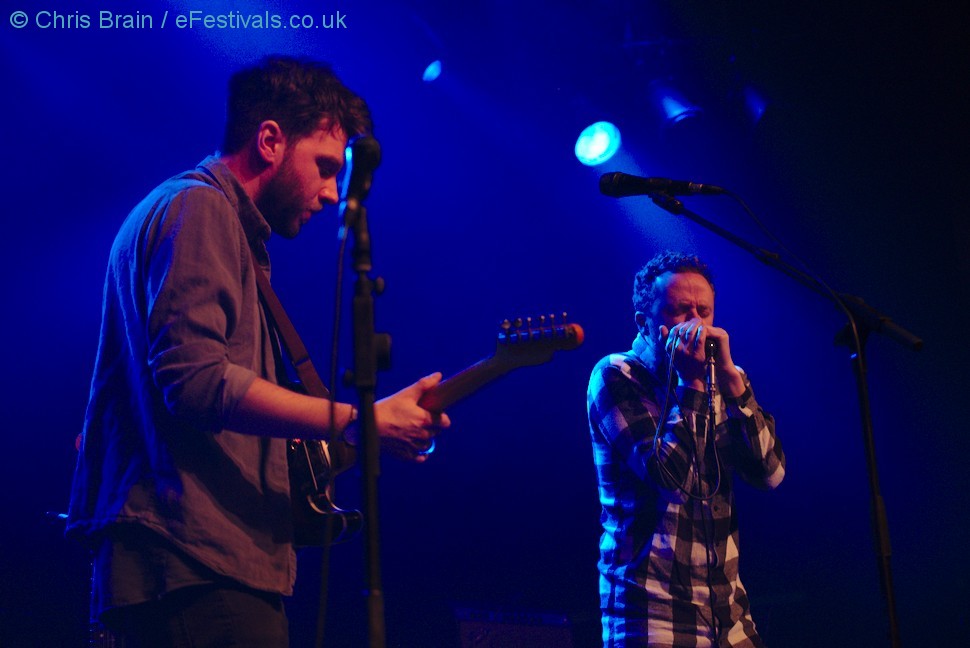
The festival just runs over Saturday and Sunday, with nothing on on Friday. This is contrary to some of the other HRH festivals, that run from Thursday to Saturday, with nothing on on Sunday. If you decide to make a full weekend of it, and arrive on Friday, you have the chance to discover some of the delights of the wonderful city of Sheffield. There seems to be a correlation between lovers of the blues and lovers of real ale. (But remember, correlation is not causation.) There are plenty of excellent real ale pubs in the city, and the increasingly well-known area called Kelham Island is just down the road. Pubs that are highly recommended include the Shakespeare’s, The Kelham Island Tavern and The Fat Cat. There’s a very nice bistro restaurant called The Milestone (booking advisable on a weekend), and a newly-opened oyster bar.
It’s easy to find the venue, a brutalist monstrosity of a building, box-shaped and covered with white tiles. It looms above the railway station and the bus station, on top of a multi-storey car park and next to the other 1960s monsters, Sheffield Hallam University, the Odeon cinema and Mecca Bingo.
There’s no chance of real ale in the O2. They have both types of beer – cold and fizzy. Prices are expensive and the barcode reader gizmos the bar staff use don’t always work properly, which seems to result in fairly frequent over-charging mistakes. On the big screens they advertise something called Viking Ale at the ‘bargain’ price of £3.95 a pint, but if you give it a try by buying two halves it’ll cost you £4.70. (Strong recommendation – do not give it a try, it’s horrible.)
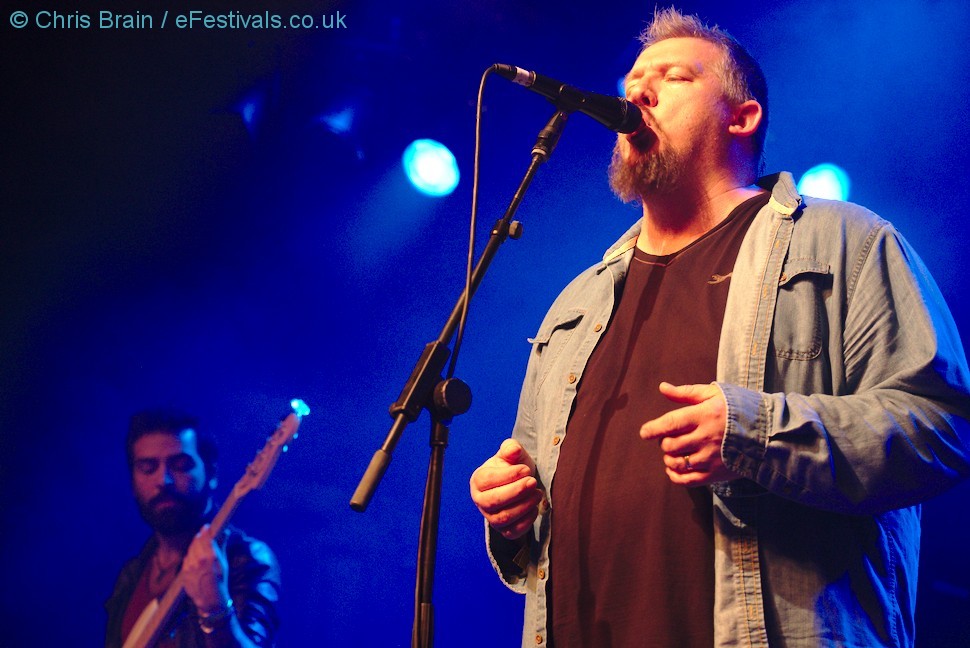
A potential disadvantage of carrying on a festival to late on Sunday night is that the people with jobs to go to and journeys to make tend to drift away before the end, so that the nominal headliner plays to a relatively small crowd, but that doesn’t seem to be the case here. It might be that a large proportion of the punters are from Sheffield and don’t have far to go, so there’s still a big crowd as the Nimmo Brothers wrap things up. Stevie Nimmo is on stage first. He’s broken his arm falling off his bike so he can’t play his guitar. He tries it for one song: it hurts. But it doesn’t affect his voice and the band goes down a storm. Then comes younger brother Alan, in a kilt, with his band King King. It’s midnight, but no-one wants to leave.
Even at the end of the day the place is still relatively tidy. Blues fans are mostly nice people who clear up their own rubbish.
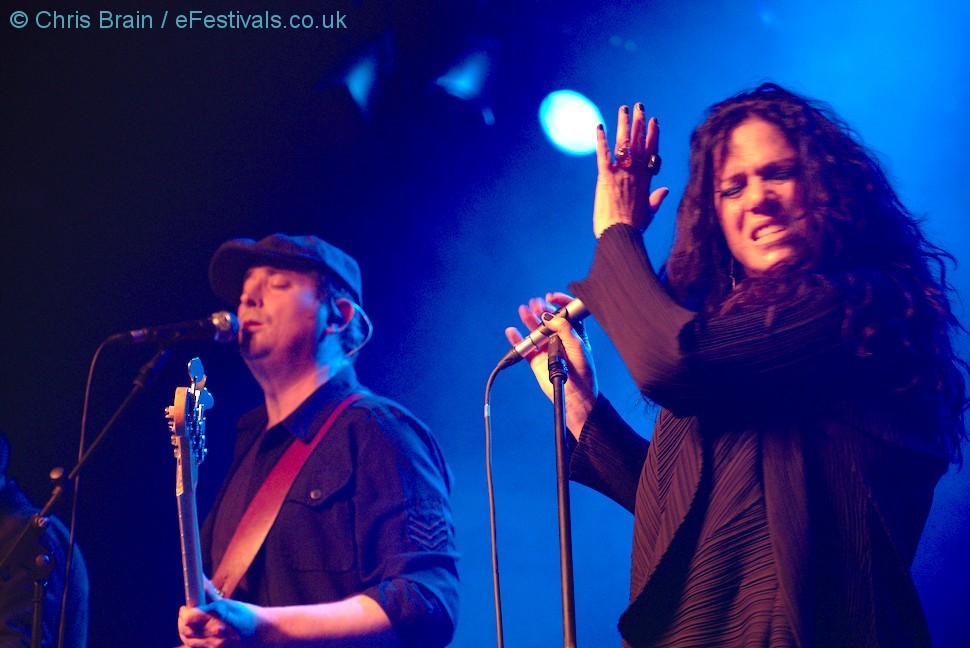
But the festival doesn’t tick many diversity boxes. There’s one black musician, a drummer with the Soul Diggers; and one female musician, a singer with Sari Schorr. The Soul Diggers are the band of Geoff Achison, an Australian singer and guitarist, who looks something like Eddie Shoestring and has a voice something like Paul Weller. He plays relaxed, laid-back funky stuff, with wah-wah. The drummer is called Seb Kelly, and he’s good. Sari Schorr are a rocking blues band, and their female singer has a gutsy, soulful voice reminiscent of both Elkie Brooks and Maggie Bell. She shows us some emotion. They’re a five-piece – she’s from Brooklyn, the keyboard player is from the Netherlands, and the guitarist is from Skeggy. Cosmopolitan.
The venue has two stages. The main stage is in a great hall downstairs, with rows of seats left and right and standing areas front and centre. At the side of the hall is a merch area where you can buy all the usual stuff – T shirts, cd’s, drinking horns, steampunk goggles. The hall has a large balcony with its own bar and sitting areas, but the balcony area is only available to those who have bought the more expensive tickets, called Royalty. If you’re allowed up there, you can see from the potted history of the venue written up on the wall that it first opened in 1968 as the “infamous” Top Rank, since then it’s hosted The Clash, and it has strong connections with local acts such as Jarvis Cocker, Richard Hawley, Reverend and The Makers, the Human League and The Arctic Monkeys. The second stage is upstairs, and there’s a security guard to make sure you turn left towards the stage and not right towards the balcony if you’ve not got the right ticket. It’s much smaller and more intimate area. The Chicago-style blues rock could be tempered by a bit of variation, and it would have been good if the second stage could have been used to give us some more low-key, acoustic music. But it’s just as rockin’ and just as loud up here, too. Certainly Big Canyon are loud, they’re a heavy metal trio who love to flick their hair around, and they belong in the 1980s. A much more enjoyable set on the upstairs stage was from the Tom Killner Band. Tom is a fine singer and guitarist, with a throaty voice like a young Joe Cocker. He finishes the set with a singalong version of "I’ll Get By with a Little Help from My Friends", which everyone loves. Other highlights on the small stage include The Rainbreakers, the Lewis Hamilton Band and the raucous Brian Rawson Band.
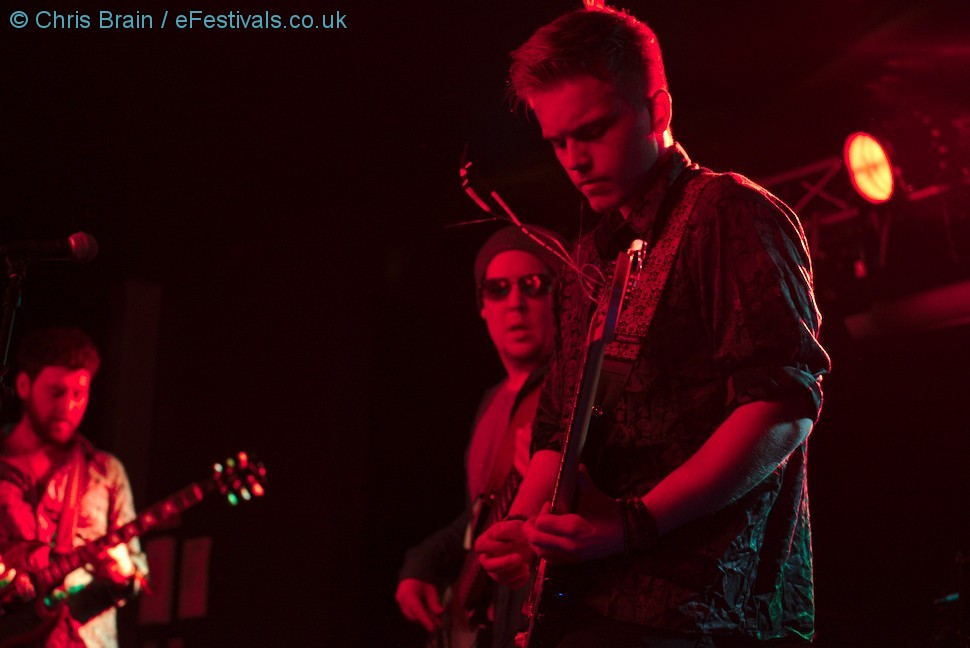
There are direct clashes between the two stages, so you can’t see everything; the beer is nasty and expensive and the catering is minimal, so you’ll probably have to go off-site for refreshment. The 12 bar format with the 48 bar guitar solos can also get a bit wearing, so it’s good to have a break. There’s a decent Wetherspoon’s pub called the Banker’s Draft with a nice upstairs room, The Globe is on the Hallam University campus, and further down the road, the Rutland Arms does excellent food.
Bernie Marsden has been around a bit, and he’s got a book out, he tells us. He was in Frankfurt this morning. He’s very personable, and the crowd love him. He plays the Cream versions of "Crossroads" and "Sitting On Top of The World", and the Peter Green songs "Oh Well" and "The Green Manalishi". He plays "Ain’t No Love in The Heart of The City" and everyone joins in. Preceding him on the stage was the young singer/guitarist Danny Bryant, and towards the end of the set Marsden welcomes him back on to the stage. This is good, the continuity of the blues, the baton being passed from the old to the young. Blues music is generally played by people who care about blues music, not just about their own band. Danny Giles is like that. He’s got a good blues rock voice and a BB King guitar style. He thanks the audience for supporting the blues. He’s also got a very good bass player and a very good drummer, and they play a duet, which is way better than most bass or drum solos. The good vibrations between the band and the audience are mutual.
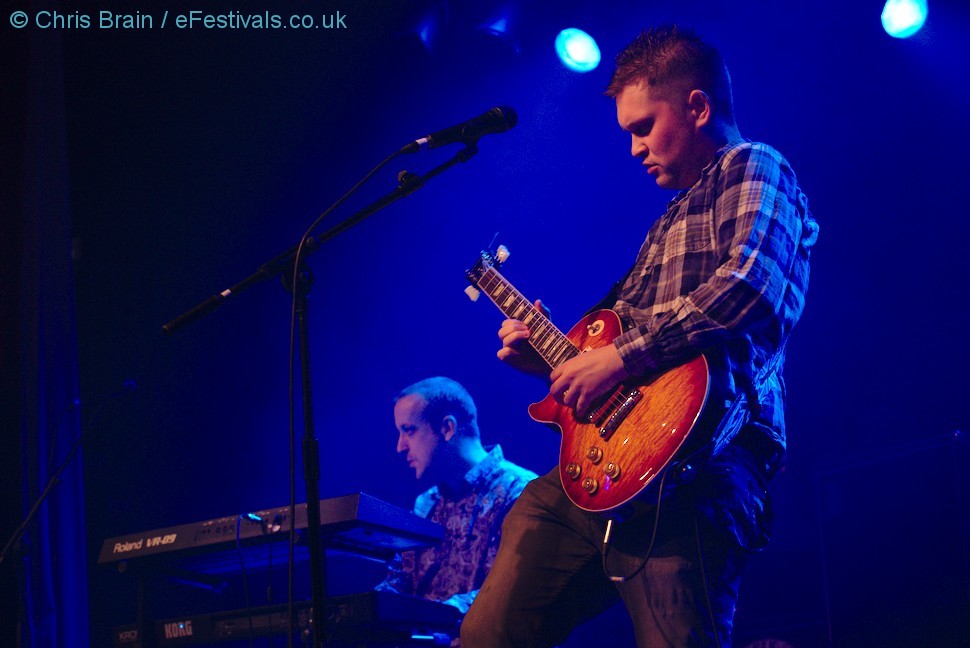
Sunday starts with Sugarman Sam and the Voodoo Men. They’re a young band and they’re excited to be here. There’s some interesting electric piano and some good work on the Gibson guitar. It’s played with style, not at 100 miles per hour – laid-back is better than turbo-charged and sometimes less is more. They have a good rapport with the audience. They play the Bernie Marsden song, "Kinda Wish She Would", for which they apologise in advance, but they make a great job of it.
Chris Antonik has a neat haircut, glasses and a leather jacket. He tells us three times that he’s from Toronto, Canada. Presumably the first time because he thinks we don’t know where Toronto is, and the second two times because he thinks we’ve forgotten. He plays slightly funky, slightly jazzy guitar. He never smiles, or makes any other meaningful facial expression.
There’s plenty of expression from Catfish. They’re a four-piece, with guitar and vocals, keyboard and vocals, six string bass, and drums. The guitarist and the keyboard player seem to want to go off in different directions, musically, and this leads to a tension between them that is positive and creative, like Lennon and McCartney, or the Chuckle Brothers. The band are lyrical and powerful, with more than a hint of prog, they have a big sound and they play slow, thoughtful songs you can get lost in. There’s applause when they say they’re going to do a song called "Broken Man", and the song richly deserves the applause. This is excellent. They do their one happy song, called "Better Days", with reggae breaks, and their political song, called "Big Shot", with guitar effects. The bass player gets a solo, he wears a Gregory Porter hat. The last song is called "Make It Rain", it’s played at an extremely slow tempo, and, in large part, an extremely low volume. It’s a brave thing to do with a last song, but it’s a triumph. By the time they make the climactic finish the audience are in raptures.
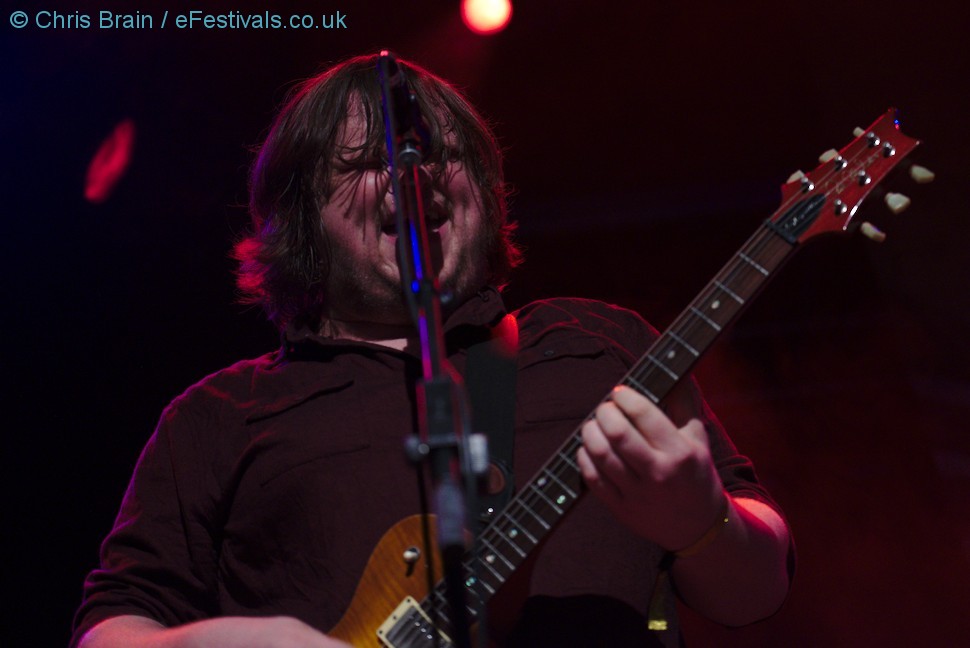
HRH festivals are always well organised. Bands take to the stage promptly and finish on time. Sets are a decent length, minimum an hour, and turnaround times are short. It obviously helps that all the bands use the same drum kit. The sound quality from both stages is very good. The standard of musicianship is high, and there are no lower quality local bands that are there just to make up the numbers. The festival is very well attended, the atmosphere is good and everyone is friendly. On the down side, it does get a bit samey after a while, with one guitar solo after another. There is more to the blues that white-boy blues rock, and it would have been nice to hear, say, some more rootsy Delta blues. The fizzy beer is too expensive.
But, all in all it’s been a great weekend. The highlights were Catfish and The Della Grants.
So, the weather’s getting warmer. Time to dust off the tents and sleeping bags for the festival season.
Latest Updates
 HRH Metal 4 2020
HRH Metal 4 2020festival details
 HRH Metal 4 2020
HRH Metal 4 2020line-ups & rumours
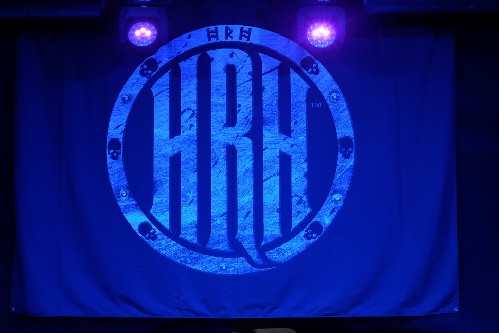 Hard Rock Hell
Hard Rock Hellfestival home page
 HRH Vikings 2019
HRH Vikings 2019festival details
 HRH Vikings 2019
HRH Vikings 2019line-ups & rumours




